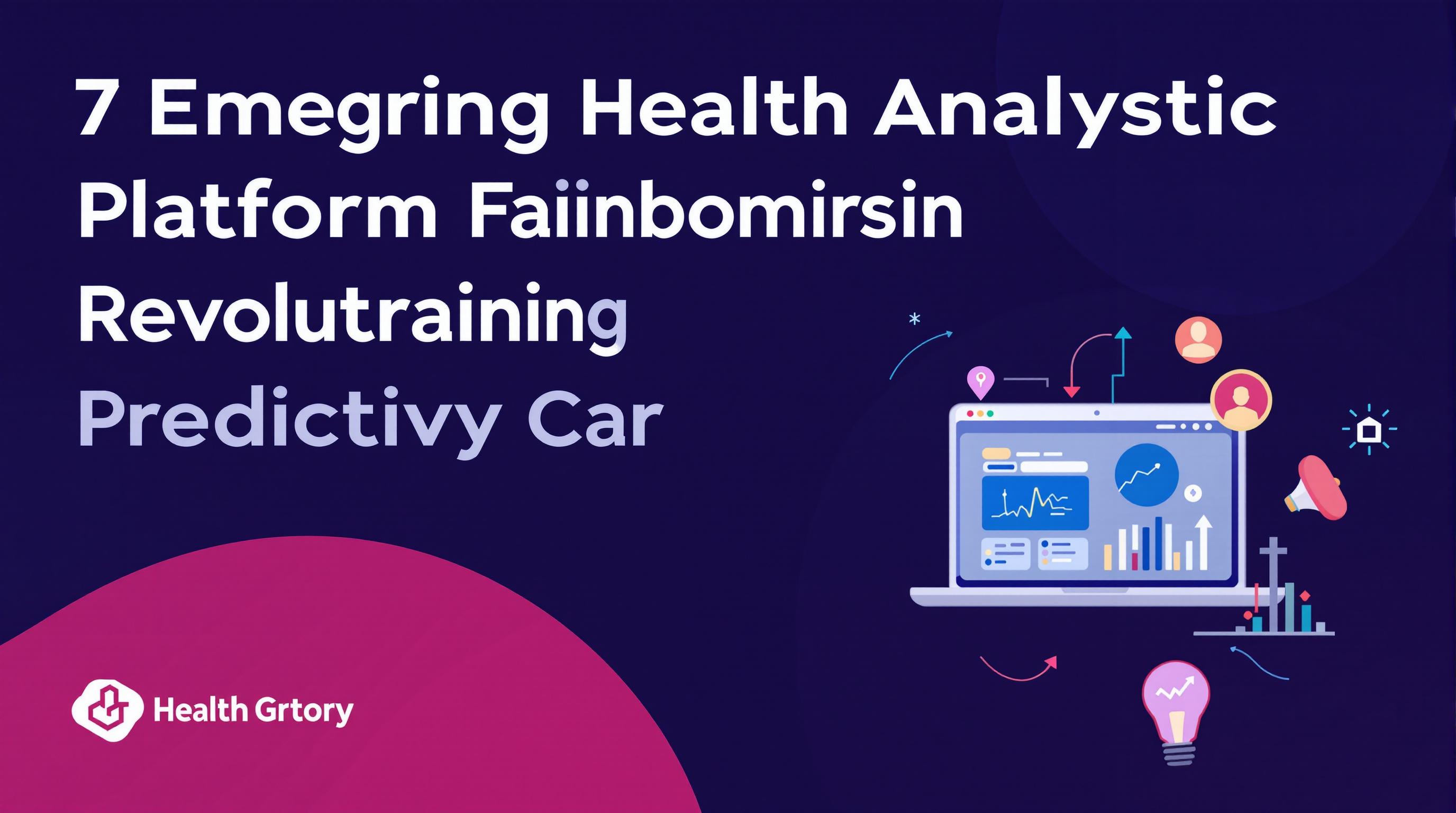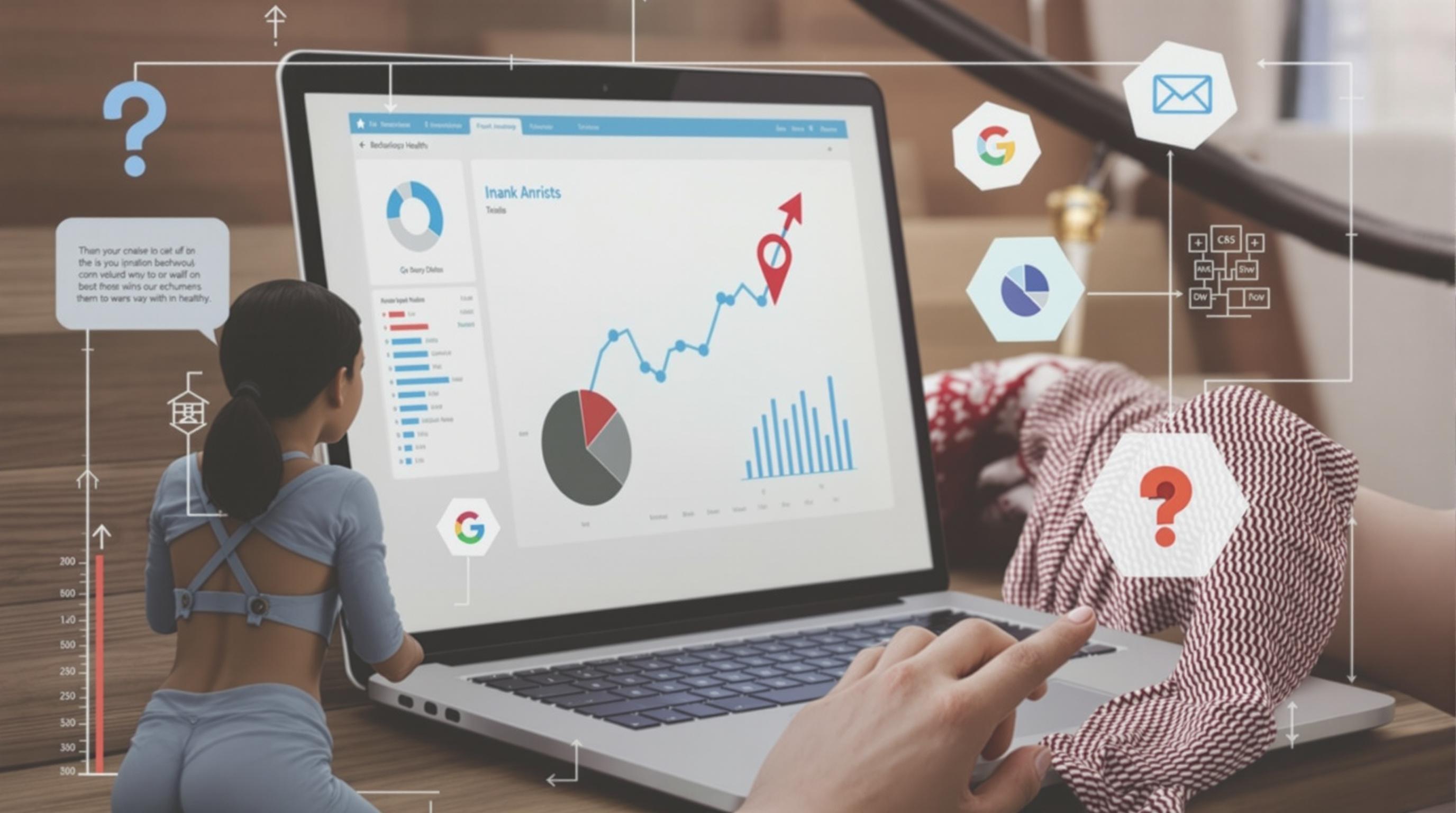Related Articles
- 7 Innovative Medical App Interfaces From the Last Five Years That Redefine User Experience in Healthcare
- Unlocking the Unseen: How Unconventional Data Sources Are Redefining Personal Wellness Tracking
- Unveiling the Silent Signals: Unexpected Links Between Sleep Patterns and Rare Immune Disorders Explored
- 7 Emerging Health Analytics Platforms Revolutionizing Predictive Care Effectiveness Since 2019
- The Untold Impact of Medical Coding Errors on Patient Outcomes and Healthcare Ethics
- 7 Game-Changing Telehealth Security Solutions Released Since 2019 You Need to Know About
7 Emerging Health Analytics Platforms Revolutionizing Predictive Care Effectiveness Since 2019
7 Emerging Health Analytics Platforms Revolutionizing Predictive Care Effectiveness Since 2019
Since 2019, health analytics platforms have dramatically transformed predictive care by harnessing advanced data analysis to improve patient outcomes. This article dives into seven such platforms reshaping healthcare through innovation, real-world impact, and cutting-edge technology.
A Dive into Health Analytics: How Predictive Care is Getting Smarter
Imagine a world where your doctor can foresee your health issues even before symptoms appear. Sounds futuristic? Platforms like IBM Watson Health have taken bold steps toward this reality by combining AI with vast medical datasets to predict patient deterioration. According to IBM, Watson's oncology platform has improved treatment accuracy by up to 30%, offering oncologists personalized care pathways instantly.
The Human Side of Algorithms: Stories that Show Their Impact
Let me tell you about Sarah, a 45-year-old mother of two. She was enrolled in a pilot program at a regional hospital using the Health Catalyst platform. The analytics flagged her early signs of sepsis—something even experienced nurses missed initially—allowing timely intervention. Thanks to this technology, Sarah recovered fully without complications. Stories like hers turn abstract data into lifesaving tools.
Precision, Not Just Buzzword
Precision medicine is more than jargon. Take Tempus, a data-driven company specializing in cancer care; it analyzes genomic and clinical data to guide effective treatment plans. Studies reveal that leveraging such platforms can reduce trial-and-error treatment approaches by nearly 25%, streamlining therapies that otherwise might take months to optimize.
Are These Platforms Accessible or Just Another Tech Luxury?
I'm 27, and as someone curious about technology but not a healthcare professional, I wondered if these innovations are just buzz or genuinely accessible. Turns out, platforms like Google Health AI are collaborating with community clinics, expanding tools for early disease detection across socio-economic spectrums. By 2023, the hope is that predictive care analytics become as common as routine blood tests.
Analytics Breathing Life Into Chronic Disease Management
Diabetes affects over 422 million people worldwide. Enter Virta Health, which employs analytics to personalize nutrition and lifestyle plans, achieving impressive results. A 2021 study noted 60% of patients on Virta's program reduced or completely halted insulin use within a year. Managing diabetes proactively is now a tangible reality thanks to such platforms.
A Touch of Humor: If Predictive Analytics Were Your Doctor
Imagine your doctor looking more like a quirky supercomputer than a white-coat-wearing human. "I foresee you binge-watched an entire season last night," it might say, "but your blood glucose says otherwise." Jokes aside, humor helps demystify the sometimes-intimidating world of AI in healthcare, making innovations feel less alien and more relatable.
Integration Challenges: The Elephant in the Room
No tech revolution is without hiccups. Epic Systems, a giant in electronic health records, has integrated predictive analytics modules, but interoperability issues arose initially. Physicians reported frustration due to data silos delaying critical insights. However, continuous updates and collaboration between tech teams and clinicians have steadily overcome these barriers, showing that evolution in healthcare tech is less about perfection and more about adaptability.
The Future is Collaborative: Partnerships Powering Predictive Care
Collaboration is king in healthcare innovation. Microsoft Azure's partnership with adaptive biotech firms enables merging AI models with real-time clinical data, fostering precision beyond standalone capabilities. This networking builds ecosystems where data isn't just collected but harmonized to meaningfully predict, prevent, and personalize care.
What’s Next? Equipment May Stay Quiet, But Data Will Speak Louder
As I pen this article from my 65-year-old vantage point, it's exhilarating to witness how platforms like Philips HealthSuite are not just collecting patient vitals but interpreting them instantly to trigger alerts and tailor treatments dynamically. The age of equipment automatons is ending; the era of smart decision-making through data insights is just beginning.
Conclusion: Navigating a Brave New World of Predictive Healthcare
From AI-enhanced diagnostics to personalized treatment algorithms, these seven platforms exemplify how health analytics revolutionizes predictive care. While challenges remain, the blend of technology, human touch, and collaborative spirit promises a healthier tomorrow where early intervention saves lives. After all, in predictive care, the best medicine might just be the data behind it.

